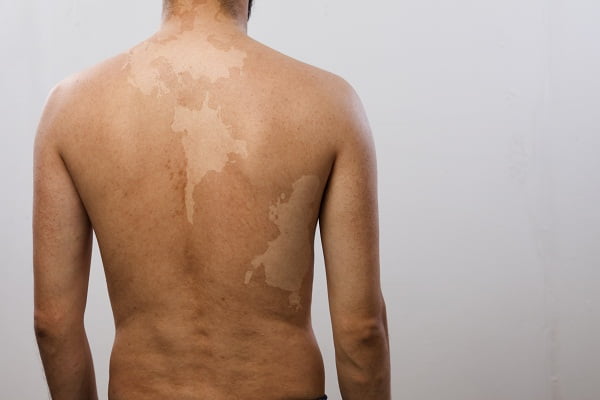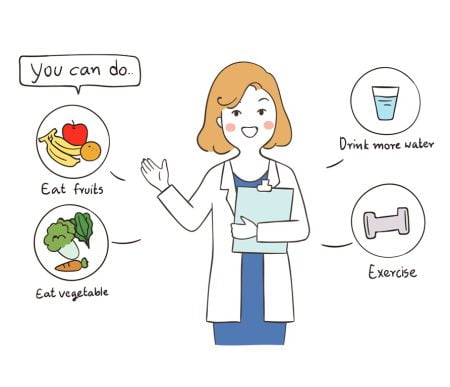Causes of Schizophrenia
- Updated on: Apr 18, 2021
- 3 min Read
- Published on Apr 18, 2021


What Causes Schizophrenia?
The exact cause of schizophrenia is not known. Researchers believe that schizophrenia is caused by several factors such as brain chemistry, genetic factors, physical and psychological factors, and environmental factors.
Scientists do not understand all of the factors necessary to cause schizophrenia. Modern biomedical research is trying to search for genes, critical moments and structures in brain development, and other factors that may lead to it or may make a person more likely to develop it.
Some people are more vulnerable to schizophrenia, with frequent psychotic episodes. Other do not have frequent episodes, they may experience only one or a few episodes over their lifetime. However, it’s not known why some people develop symptoms episodes while others don’t.
Problems with some naturally occurring brain chemicals, including neurotransmitters (such as dopamine and glutamate) which help to carry messages between brain cells may increase the risk for or may cause schizophrenia. Some studies show differences in the brain structures of people with schizophrenia and who do not have it. Though researchers are not sure of these changes and their importance in the development of schizophrenia, but it is agreed upon that it is a brain disease.
Risk Factors
Things that can increase the chances of developing schizophrenia are as follows:
Genetics
You’re more likely to develop schizophrenia if someone in your family has it. If your parent, brother, or sister has it, your chances of getting it increase by 10%. If both your parents have it, you have a 40% chance of getting it. If you have identical twins with the disorder, the chances are significantly higher – up to 50%.
Researchers believe that there’s not just one gene responsible for schizophrenia. Instead, it requires many genetic changes, or mutations, to increase your chances of having the disease.
Some people with schizophrenia have no family history of the disease. It is believed that mutations might have happened in the gene that made the condition more unlikely to develop. Therefore, researchers believe that genes are not the only thing responsible for it. There are many more things to be considered.
The Development of Brain Structures
Studies of people with schizophrenia shows there are differences in the structure of brains of those who have it and who do not have it. For example, fluid-filled cavities at the center of the brain (called ventricles), are larger in some people with schizophrenia compared to those who do not have it.
Studies of brain in some people with schizophrenia after death also showed that their brain structure is different than it was at birth.
While these changes are not noted in everyone with schizophrenia and can occur in people who don’t even have any mental problem, but they indicate a probable cause of the disorder.
Natural Chemicals in your Brain (Neurotransmitters)
Neurotransmitters (such as dopamine and serotonin) are natural chemicals that carry messages between brain cells.
It is believed there is an association between neurotransmitters and schizophrenia because certain drugs that change the levels of neurotransmitters in the brain are found to relieve some symptoms of schizophrenia.
Pregnancy and Birth Complications
There are some evidences to support that people who develop schizophrenia might have experienced certain complications before or during their birth. These complications could be either of these:
- A low birth weight
- Asphyxia – lack of oxygen during birth
- Premature labor / Premature birth
- Malnutrition
- Exposure to toxins or viruses
- Other issues that may impact brain development
Drugs
Drugs don’t directly cause schizophrenia, but some studies indicate that drug misuse increases the risk of getting schizophrenia.
Studies show that taking certain drugs that affect your brain such as psychoactive or psychotropic drugs (for example methamphetamines or LSD) can increase the risk of getting schizophrenia. Some studies have shown that use of marijuana also increases the risk. These drugs can cause certain symptoms to develop such as hallucinations, delusions, confused thoughts, and trouble thinking clearly.
Cannabis, cocaine, and amphetamines may trigger symptoms of schizophrenia in people who are susceptible.
Stress
Stressful life events may trigger schizophrenia. These events may include such as:
- Being jobless for a long time
- Losing your loved ones
- Divorce
- End of relationships with someone you dearly loved
- Physical or sexual abuse
- Emotional abuse
- Depression
- Felling lonely or isolated
- Having money problems
- Being harassed
- Being homeless or becoming homeless
Other Triggers and Causes
- Environmental factors such as nutrition, exposure to certain viruses or chemicals
- Exposure to certain infections before you were born
- Lack of nutrition from your mother when you were born or during pregnancy
- Old age of the father
- Injury to the brain
If you are at risk of schizophrenia and notice any of the symptoms, you should see a psychiatrist. He or she will help you identify whether any care is needed or not given your circumstances. Read about the symptoms of schizophrenia.












